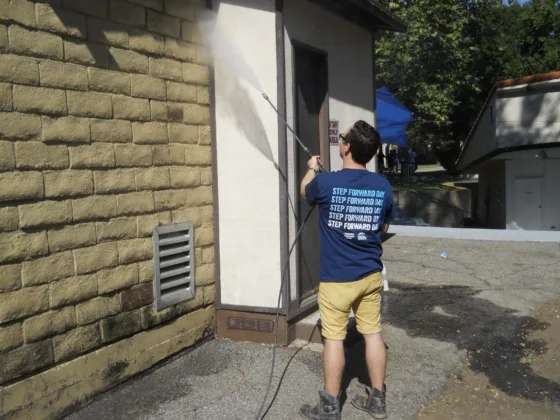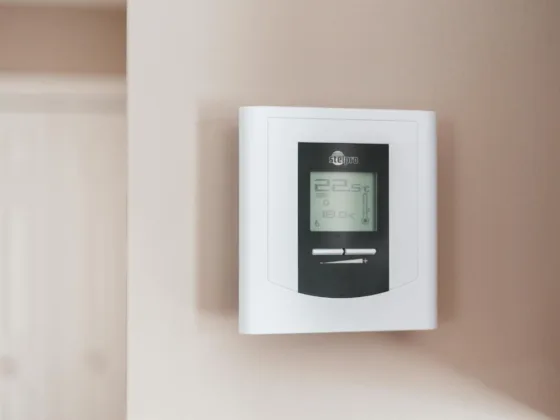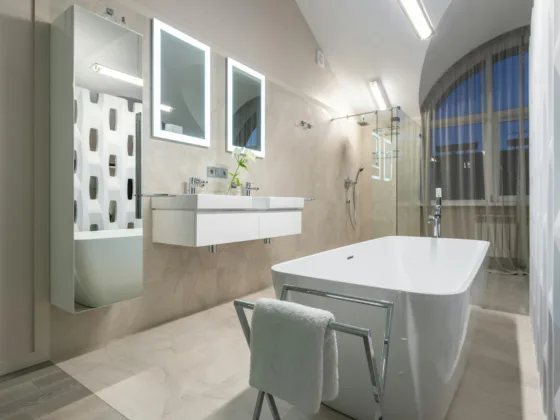Table of Contents Show
Heat pump installations are gaining popularity for being both efficient and good for the environment when it comes to warming and cooling houses. A study from the U.S. Department of Energy suggests that heat pumps can be 50% more efficient compared to regular heating systems, which makes them an attractive option for house owners who want to cut down on energy use and save money on their energy expenses.
Introduction to Heat Pumps
What is a Heat Pump?
A heat pump moves warmth from one place to another, usually from the outside air or soil, into a building when it is cold and out of the building to the air or soil when it is hot. This differs from usual heating systems like furnaces or boilers that produce heat; instead, heat pumps shift existing warmth without making new heat.
How Do Heat Pumps Work?
A heat pump works based on refrigeration. It has four essential parts: an evaporator, a compressor, a condenser, and an expansion valve. In the process of heating, the coolant takes in heat from air or earth that is cool and compresses to make it warmer.
After this, the warm coolant enters the building, giving out its warmth to heat the indoor area. During the cooling cycle, heat is taken from inside air by the heat pump and expelled outdoors.
Types of Heat Pumps
Air-Source Heat Pumps
Heat pumps that take heat from outside air and move it inside when it’s cold are popular. These work well in places where the weather doesn’t get too cold, not often going below zero degrees.
Ground-Source Heat Pumps (Geothermal Heat Pumps)
Ground-source heat pumps, which you can also call geothermal heat pumps, use the ground’s stable temperature beneath the frost line to help with heating and cooling. They work well but need a significant investment initially to set them up.
Ductless Mini-Split Heat Pumps
Mini-split heat pumps without ducts have an outside compressor linked to one or more inside units for handling air through lines with refrigerant. These are adaptable choices for houses lacking duct systems and make it possible to regulate temperatures separately in various areas of the home.
Absorption Heat Pumps
Heat absorption pumps use a heat source like natural gas or power from the sun to make the cooling cycle run. They are not so much used in homes, but you can find them more in business and factory places.
Benefits of Heat Pumps
Energy Efficiency
Heat pumps are very good at saving energy because they move heat around instead of making it. This means you can spend less money on heating and cooling if you use heat pumps, unlike the usual systems for controlling temperature in buildings.
Environmental Friendliness
Heat pumps emit less greenhouse gasses than heating systems that use fossil fuels, so they are better for the environment when you need to heat or cool your home. Also, if you power heat pumps with renewable energy like solar power, their carbon footprint is even smaller.
Year-Round Comfort
Heat pumps can warm and cool a house with just one system, giving comfort for every season. They work well to make a home cozy in cold months and keep it fresh during hot times, removing the necessity of having different systems for heating and cooling.
Quiet Operation
Heat pumps work more silently than old-fashioned HVAC systems, making less sound inside and outside the house. They are very suitable for places where people live because they do not want too much noise.
Long Lifespan
If you care for them well, heat pumps can last for 15 to 20 years or sometimes even longer, which means they are a strong and lasting choice for people who own their homes.
Considerations for Installation and Maintenance
Proper Sizing
To correctly choose a heat pump, it must match the home’s heating and cooling needs. If too small, the pump might not keep the house warm or cool enough. But if it is too big, it can turn on and off too much, which is less effective and could cause more damage over time.
Regular Maintenance
Regular upkeep is fundamental to ensure a heat pump works its best and lasts long. It involves cleaning or changing air filters, looking at coolant amounts, putting oil on moving parts, and searching for any clues of wear or harm.
Professional Installation
To ensure the best performance and save energy, it is advised to hire a skilled HVAC worker to set up your heat pump. This ensures that the system fits well for your space, that ducts are placed correctly, and everything works as intended.
Climate Considerations
A heat pump’s effectiveness can change with different weather situations. Air-source heat pumps work well in places that are not too hot or cold, but in icy areas, they might find it hard to give enough warmth. In such cases, a ground-source heat pump or supplemental heating system may be necessary.
Final Thoughts
Heat pumps are flexible and save energy when making homes warm or cool. Knowing how heat pumps function and looking at aspects like their kind, advantages, setup process, and upkeep needs helps people to choose wisely about using this technology in their houses. If you take care of them and do regular maintenance, heat pumps can keep giving you steady warmth and help save money on energy for many years ahead.






